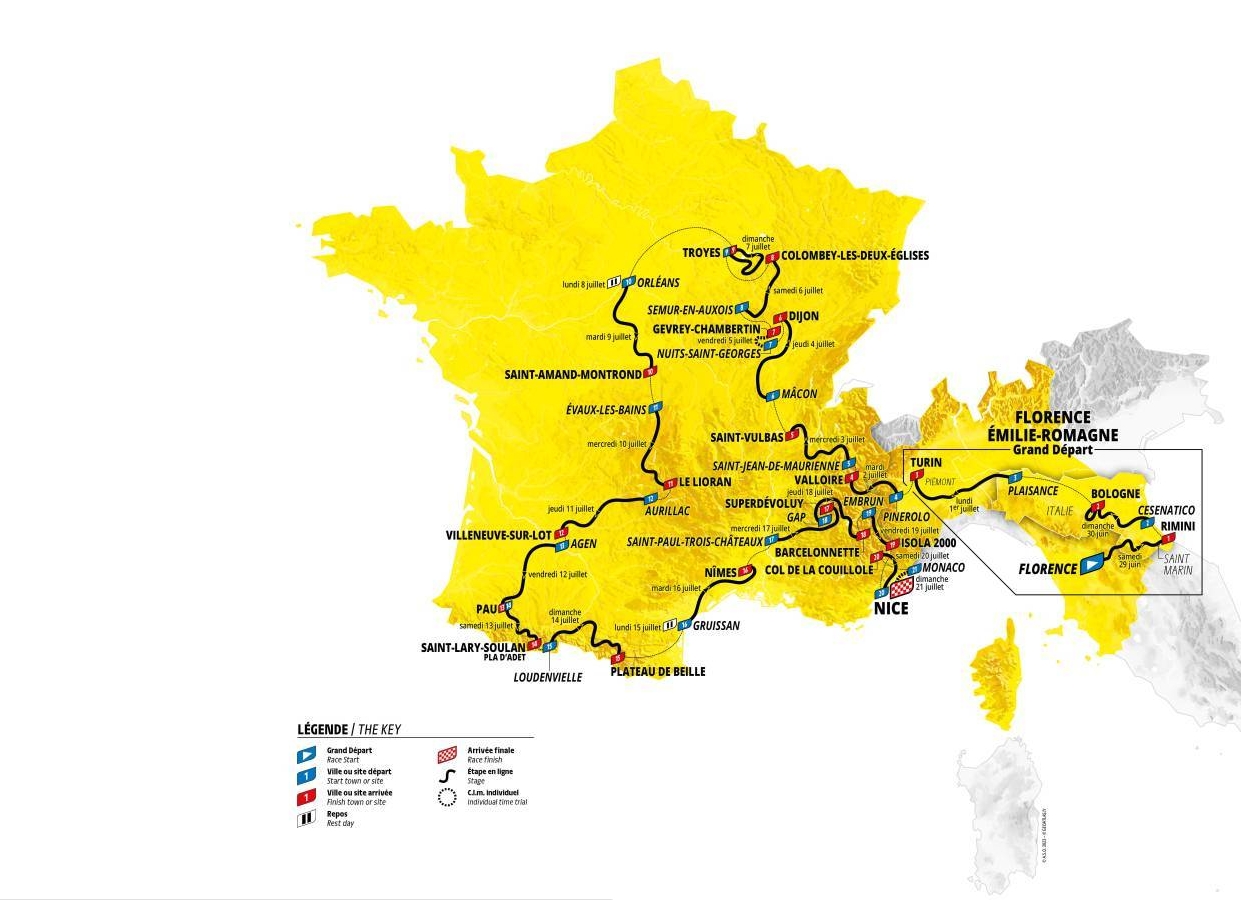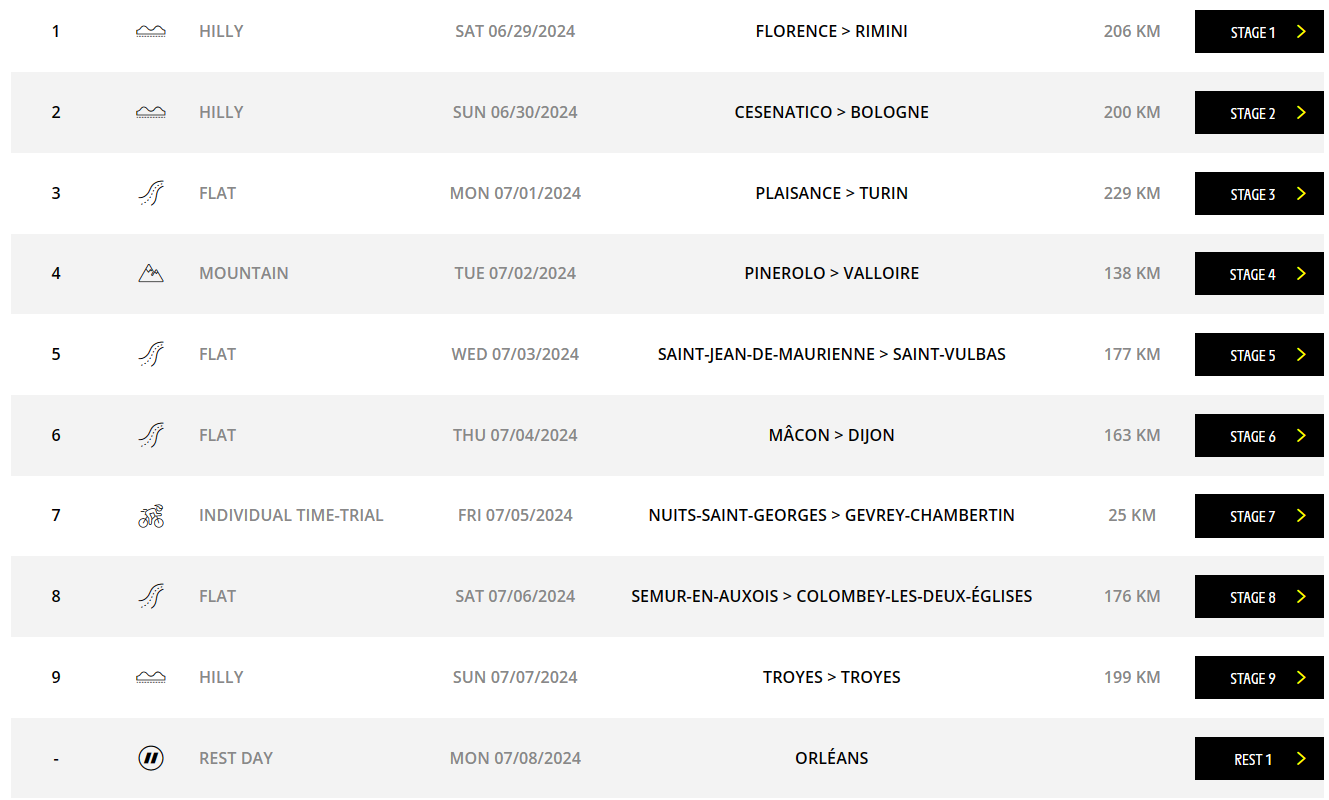Innovations and Changes in the 2024 Tour de France
The 2024 Tour de France is set to be a landmark edition in the history of the race, as it will, for the first time, end in Nice rather than the traditional Parisian finish on the Champs-élysées. This significant change is necessitated by the preparations for the 2024 Paris Olympics, which require space and resources that preclude the usual Tour finale. This move not only breaks with decades of tradition but also brings considerable attention and excitement to the city of Nice.
This year's route is uniquely designed, featuring more mountainous stages and increased technical difficulty. These changes aim to enhance the spectacle of the race and present a greater challenge to the competitors. The organizers hope that these adjustments will make the race more thrilling and attract a larger audience. The new stages include several novel climbing routes that will test the riders' endurance and strategic planning.

In line with current environmental and sustainability goals, the 2024 Tour de France has also innovated in its operations and logistics. The organizers are committed to reducing carbon emissions, promoting green transportation, and encouraging spectators to use public transport or bicycles to reach viewing spots. Additionally, the event will utilize more renewable energy sources to minimize its environmental footprint. These measures reflect the Tour’s social responsibility and set a benchmark for other major sporting events.

Beyond the competitive aspect, the 2024 Tour de France plays a significant role in cultural exchange and city promotion. As the final city, Nice will welcome a large influx of tourists and cycling enthusiasts, significantly boosting local tourism and the economy. This event provides Nice with a platform to showcase its rich history, culture, and natural beauty, drawing more people to appreciate and love the city.
Overall, the 2024 Tour de France's changes and innovations not only enrich the event itself but also contribute positively to the development and popularity of cycling. This edition of the race is not just a stage for athletic prowess but also an important platform for promoting environmental awareness and cultural heritage. The successful execution of the Tour will offer valuable insights and experiences for future sporting events.
- slideshare https://www.slideshare.net/slideshow/innovations-and-changes-in-the-2024-tour-de-france/268291713
- quora https://qr.ae/psWkYs
- medium https://medium.com/@maxsun_56088/nnovations-and-changes-in-the-2024-tour-de-france-adc480a0ac4e
- linkedin https://www.linkedin.com/feed/update/urn:li:activity:7195977943997628416




